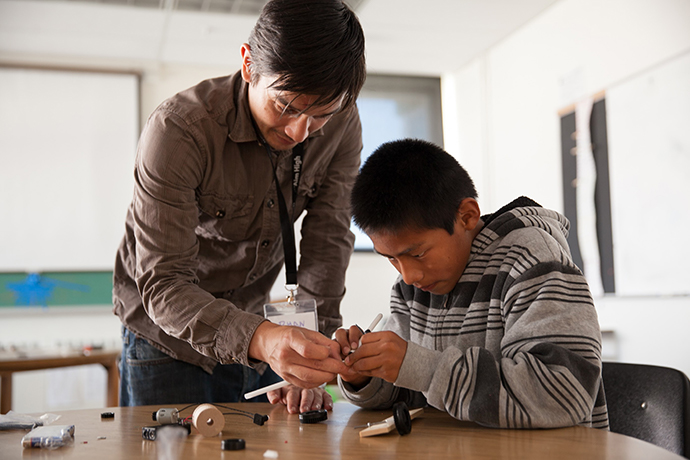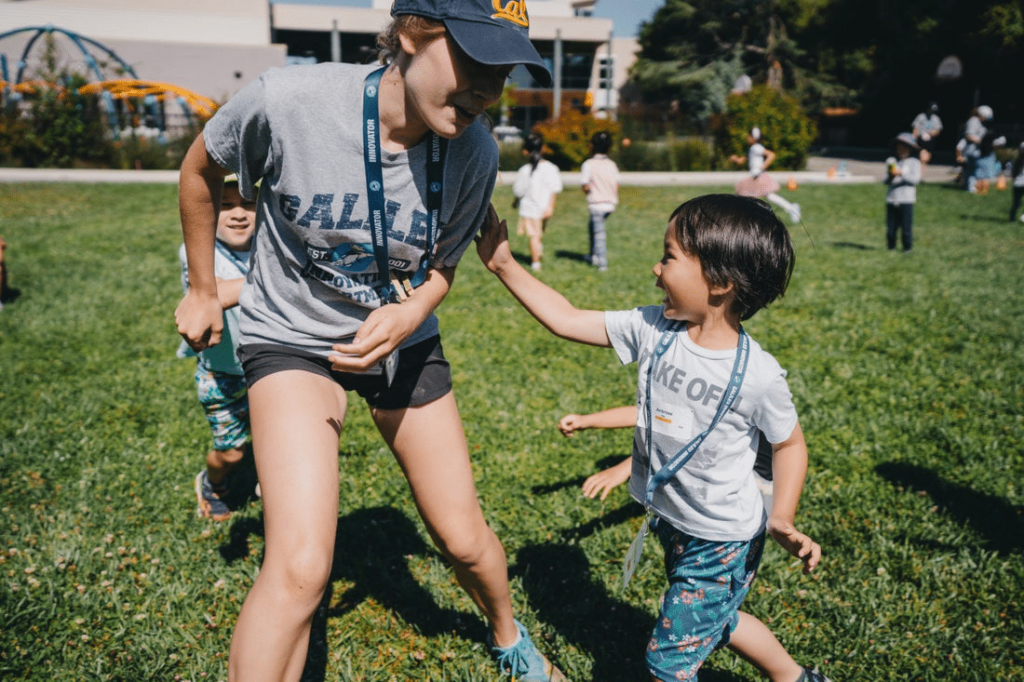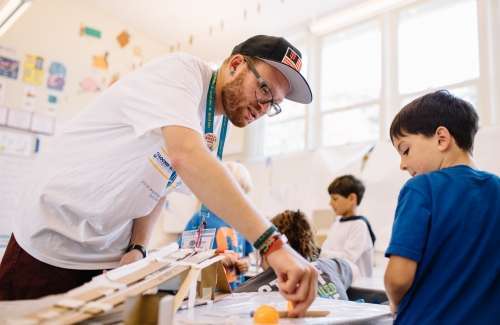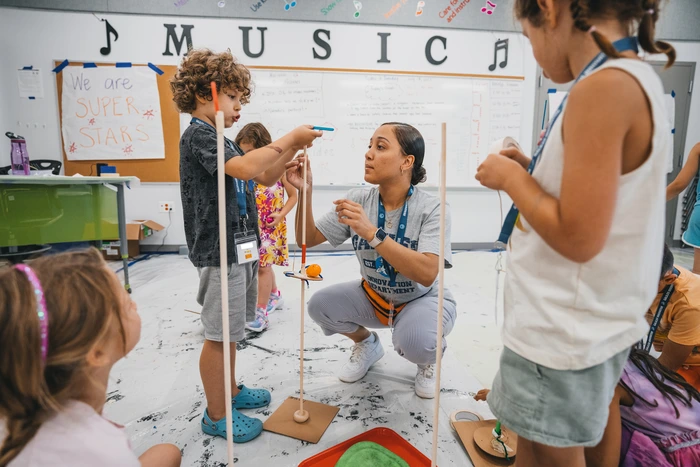Genius—the dictionary defines it as the quality of exceptional intelligence, creative power or natural ability. Through its application, genius is responsible for the countless inventions and innovations that have shaped our world. Howard Gardner’s Theory of Multiple Intelligences suggests that each of us is capable of genius in one form or another. So, it makes sense that educators and policymakers are increasingly endorsing genius hours. This phenomenon, occurring in schools and workplaces, give individuals dedicated time to ideate, research, tinker and create. Fueled by interests, passions and their own burning questions, genius hour projects give individuals the agency to exercise and explore their own genius potential.
ESTABLISHING A RATIONALE
Educator and author of books that include Catching Up or Leading the Way: American Education in the Age of Globalization (2009) and World Class Learners: Educating Creative and Entrepreneurial Students (2012), Yong Zhao asserts that kids must be allowed to establish their own educational pathways and develop their own ideas. He advocates a strengths-based approach to education, where learners are treated as individuals with unique talents and aptitudes. Educated in China before emigrating to the US, he believes the strength of our system is in cultivating creativity, which gives us our competitive edge. “Innovation cannot be implemented,” says Zhao, “It needs to grow organically.” He argues that the future depends on creative, uniquely talented individuals, who are globally and digitally competent.
THE NUTS AND BOLTS OF GENIUS HOUR
With schools increasingly implementing genius hours, your kids may already be involved. If not, there is infinite potential for independent learning projects at home. To implement genius hour and enable kids to really dig in, there are a few things to consider:
Kids must have choices — Genius hour project ideas comprise a specific subset of project-based learning in which kids have the freedom to follow their passions and interests, to tap into their own curiosity and engage their creativity. This might be an opportunity for an open-ended project on any topic or maybe on a given theme or area of study from which they choose their own unique focus.
Engaging and empowering kids — By giving kids access to real tools and energetic mentors, they are engaged and empowered. This type of learning opportunity does not merely capture kids’ interest but inspires them to take the lead.
Tapping kids’ intrinsic motivation — Intrinsic motivation is not predicated by external factors, such as getting good grades or winning awards. When kids are motivated by their own passions and they learn to value their ideas, they are unstoppable.
Researching deeply and creating broadly — Genius hour projects allow kids to engage in in-depth research and create without restrictions. They will benefit from resources and the input of expert mentors.
Developing life skills — Since genius hour projects are modeled after the process used at companies like Google and 3M, it makes sense that kids who complete them come away with real life and career skills. These include research, collaboration, critical thinking and problem-solving skills, to name just a few.
Failing forward — Learning from mistakes in the context of an authentic project provides a powerful lesson. Celebrating failures and moving on from them is built into the genius hour process, thus encouraging kids to take risks.
Communicating their ideas — Creative people have many ways to share their ideas with others, including podcasts, TED Talks, YouTube videos, and even the Shark Tank. And thanks to the internet and digital technologies, kids have similar access. Part of the genius hour process involves sharing their product with peers, family members or other key stakeholders, as appropriate.
The process is as important as the final product — Since the genius hour process is complex and multi-faceted, learning occurs all along the way. At each step, kids are learning skills and procedures that they can use again. For this reason, it is important to emphasize and reflect back on the process, as well as to evaluate the product.

HELPING KIDS IDENTIFY THEIR PASSIONS
Genius hour project ideas for kids can come from anywhere. Start with what they like to do: solve puzzles or escape room mysteries, play arcade or video games, build things from wood, sew or cook. Perhaps they have a compassionate interest in animal conservation, world hunger or the environment. They may be really into a sport, musical genre or hobby. Maybe they have a desire to learn a world language, American sign language or a programming language, or a have a strong curiosity about a particular career. Help kids brainstorm multiple ideas before they narrow their focus. Encourage them to think broadly about resources and expert mentors. Support their quest to learn by asking questions and giving feedback.
SUPPORTING GENIUS IN ALL ITS FORMS
Our world and its future depend largely on genius in its many forms. Parents can support the geniuses in their families as they explore passions and interests at home, at school and at summer camp. Kids will gain confidence and knowledge even as they acquire valuable skills. From art, music and literature to science and technology, innovative geniuses have benefitted from time and freedom to explore their passions and learn from their mistakes. Genius hours are unquestionably a worthwhile investment in the future.
Support the creative genius in your house by checking out these summer camps in your area: San Francisco Bay Area, Southern California, and Chicagoland. Sign up for our mailing list to keep up-to-date on our camp happenings, innovation resources and registration information for our upcoming 2019 camp season.



